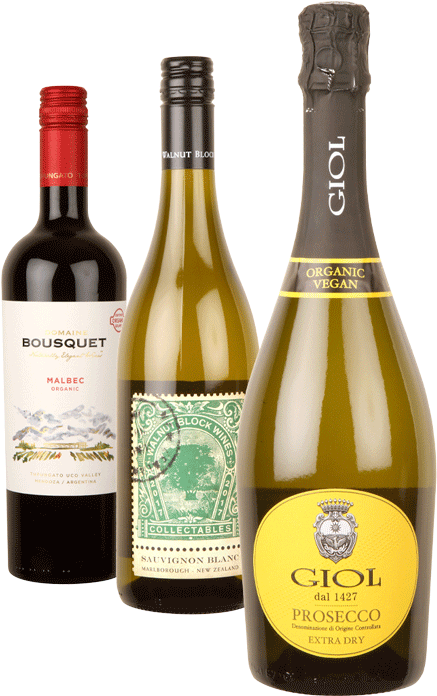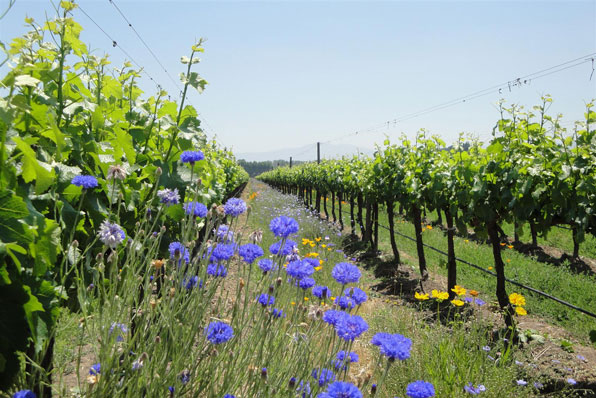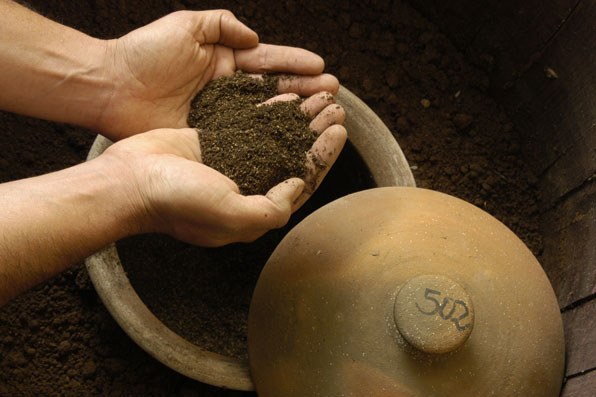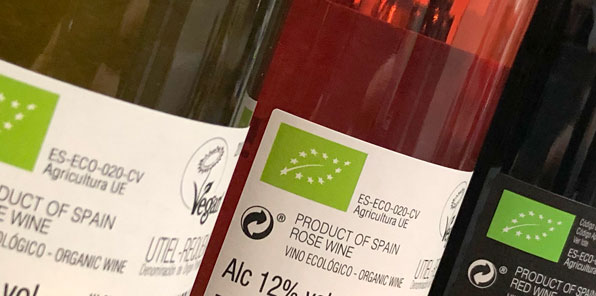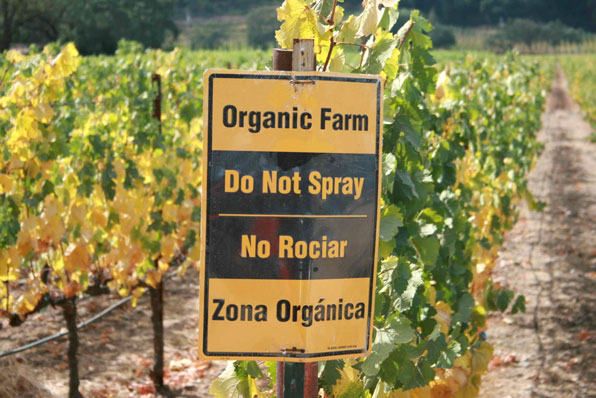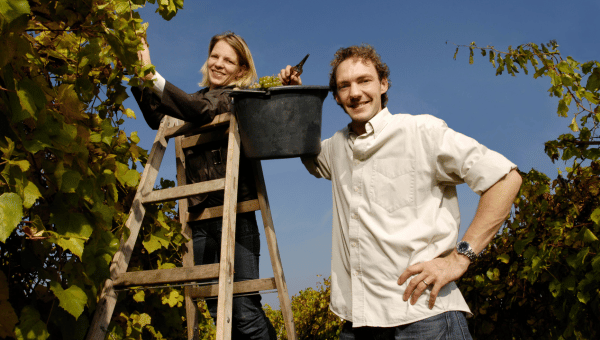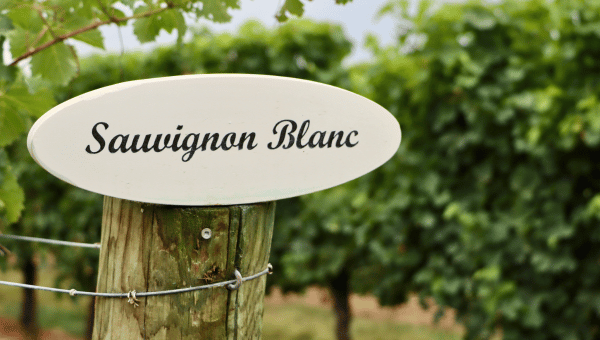Complete Guide to Organic Wine
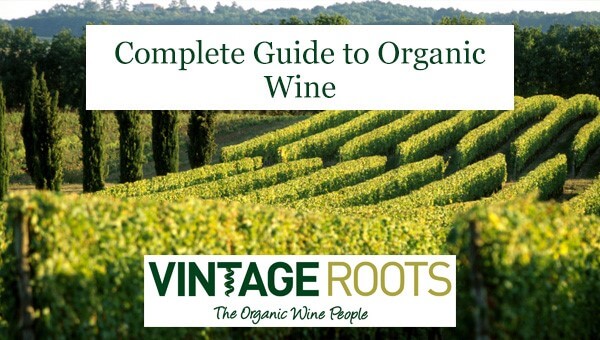
What does organic mean?
If you’re a chemist or a change management consultant (help!), the word organic will crop up in conversation quite differently than it does when used by foodies and wine drinkers. You will find the Vintage Roots gang firmly in the second camp.
At Vintage Roots, organic means no nasty herbicides or pesticides and sensitive, environmentally-friendly land management. Most importantly for Vintage Roots, organic is about certification and being confident that the growers we work with meet the strict regulations that come with organic accreditation.
What is organic wine?
Organic wine is any wine that is certified organic and legally approved as being so. For a wine to be classed as organic, it needs to meet certain criteria relating to how it is grown and the ingredients in the wine.
To be a certified organic wine, the wine must meet the following criteria:
- All agricultural ingredients used in the wine such as grapes, sugar and alcohol must be certified organic.
- Sorbic acid is prohibited and so too is desulfurication
- Restrictions on total S02 levels in wine sold. Read more about S02 restrictions on organic wine here.
- Restricted use of a wide array of around 80 additives that can be permissible during wine production.
Since 2012 the term ‘organic wine’ has been legally approved for use. Nowadays, the entire wine production process from field to glass can now be certified organic, with producers needing to enrol with a control agency. Additionally, wine producers pay fees and participate in regular inspections and record-keeping to ensure they consistently meet requirements.”
How does soil affect wine?
Soils are the source of the nutrients that the vines and therefore grapes will receive. Just like your garden at home, the soil is important and just as a healthy hanging basket of pansies relies on the compost, so does the vine. Wines get their unique flavours, textures, and characteristics from many places with soil being one of the– if not the – most important factors.
The difference between organic wines and non-organic wines can be seen very visually in the soils. You’ll never forget the moment you see soils from a non-organic farm compared to an organic one.
Pesticides, synthetic herbicides and other chemicals turn soils into a brown sludge and the environment around it is a stale and eerie place. Move to an organic farm and you’ll see fresh, aerated soil full of bacteria, fungi, insects and all kinds of microorganisms. This in turn helps an organic farm enhance biodiversity and protect wildlife.
Just like us, plants need nutrients in order to survive, and whilst some of those will come from photosynthesis, the bulk of them are only available from a healthy soil.
The key to unlocking those nutrients lies with the microbes that survive only in healthy soils.
Healthy soils can convert nutrients to forms that can be assimilated by the plant roots.
- A well aerated soil aids this process, by providing oxygen to those microbes to do their job most efficiently.
- A healthy vine will have roots that penetrate deep down into the soil and rock to look for those important nutrients (This process is helped by earthworms which make channels, as well as aerating the soil.)
- The whole process is interconnected, with the microbes, worms, soil aeration, nutrient supply, deep roots feeding through for a healthy, disease resistant vine to grow balanced, nutritious grapes, for good wine!
This really does lead to a healthy vine, nutrient-full grapes, and a very healthy looking (and tasting) wine.
Pesticides and non-organic wine
Sadly pesticides are a common feature of non-organic vine growing. They can add to a chemical cocktail which may be the cause of nasty headaches, and reactions for the consumer. The environmental impact of pesticides for our land and wildlife is now well documented.
In 2008 the Pesticide Action Network (PAN) conducted a survey on pesticide residue in non-organic wine and the findings were shocking. Pesticide residue was found in each and every one of the 34 wines tested. On average PAN found four pesticides per wine. More recent surveys in the US have been just as damning.
When a vine grower chooses to go for organic certification they embark on a three year journey. This is the time that experts agree it takes for the land to be cleansed of most of the toxic chemical residues. This three-year conversion is compulsory, regardless of what was – or was not – done with the land previously.
In the second year of conversion (C2) a producer can use the phrase, “product under conversion to organic agriculture (AB)’. At Vintage Roots these wines do sometimes appear in our list as it helps to support the winery during the expensive and lengthy conversion process.
The benefits of organic wine
Does Organic wine taste better?
To say that all organic wine tastes better than non-organically certified wines would be a silly claim. Not every organic winemaker is as gifted as the next and there are (sadly) wine duffers in all categories!
The qualities that we love in organic wines include…
- Their tendency to have wonderfully expressive varietal character
- Their tale-telling qualities … few non-organic wines capture the characteristics of the vintage and the places the vine grow like organic wines do
- Their individuality
- The concentration of flavour that is the result of the lower yields, common to organic viticulture.
- The confidence and feel good factor you have when drinking them.
Is Organic Wine Healthier?
Common-sense suggests that choosing to drink organic is better for your health. For starters, you are exposing yourself to less sulphites and artificial chemicals. There’s a good chance you’ll get less sugar too. Lastly, healthy organically-farmed grapes are likely to have more anthocyanins and antioxidants.
As always, sensible wine consumption is the healthiest way forward.
Is all Organic Wine Vegan?
In a word, no! A wine’s vegan or vegetarian credentials are determined by the products used during the fining process. The good news is that not all producers opt to fine their wines and those that do often use carbon and clay-based fining agents . This means that there are many, many vegan-friendly organic wines available. Well over 90% of Vintage Roots organic wines are vegan suitable. You can read more about vegan wines here.
How Organic Wine is Made
Wine has been made for many thousands of years. In some ways it is a refreshingly simple process with healthy grapes being picked, fermented and the resulting wine bottled (sometime after a period of ageing in one vessel or another).
Like everything, the deeper you dig the more complicated it all becomes. You have read that the vines are grown without recourse to synthetic pesticides and herbicides and you know that organic wines typically have less sulphur but (that) what does that actually mean for the organic wine producer?
Cover crops and the local flora and fauna
Vine and soil health is extremely important to the organic viticulturalist who won’t be able to make quick-fix chemical interventions. So, there will be a lot of thought about which cover crops to grow to help breakdown the soil and to add nutritional value, as well as help wildlife and promote biodiversity. It may be that certain plants are chosen because they make good homes for natural predators. For instance, one winemaker grows honeysuckle which brings both nitrogen and insects to the vineyard.
Composts
The fertility of the soil is supported through the use of raw manures, composts, organic fertilisers and mineral supplements. The choices made by the winemaker will depend on the terroir he has and the vine varieties being grown.
Yeasts & Sulphur
Once the grapes are harvested an organic winemaker can use organic yeasts (though a biodynamic producer is restricted to wild yeasts only). The choice of yeast can have a significant impact on flavour and so the winemaker will be mindful of the final style of wine they wish to make.
The sulphur story has been well told on the Vintage Roots blog but it’s important to reiterate that less sulphur is only achievable when the grapes are healthy and the wine is stable. For the organic producer there’s a need to be especially attentive at harvest time.
Packaging
Keen to keep carbon footprints down and minimise the impact on the environment, there are decisions to made on packaging too! Sustainable cork, lighter bottles, wooden crates or recycled-carboard boxes …
10 Myths about Organic Wines
As with any industry, fashion, style, product, or service there are some misconceptions about organic wine that we want to quash. We hear a lot of mis-quoted or ill-informed notions about organic wines and where they come from, how they taste and what they cost, so here are ten of the top myths we hear about organic wines debunked once and for all!
Organic wines are just a fad
The growth in the organic markets on the whole is huge and it’s not about to die down now. Organic wines from the supermarket shelves and certainly from specialist organic distributors like us are on the up and increasing at phenomenal rates… they’re not a fad! in February 2020, The Drinks Business reported that sales of organic wines had risen 47% in the year ending 28 December.
Organic wines guarantee ‘no headaches’
No, you can’t avoid a hangover by drinking three bottles of organic wine. Shame. However, choosing organic will help you avoid too many sulphites that you might be allergic to and with fewer pesticides present it’s fair to say that organic wine is better suited to giving you less grief the next day. It’s just not guaranteed.
Organic wines cost twice as much
Organic wines aren’t the cheap option, but they’re not over-priced either. When you understand what goes into the production of organic wine you can start to see why they demand a higher ticket. That said, they’re rarely twice the price of the equivalent conventional wine. As with many things in life, you get what you pay for. No hidden clean-up costs with organic either.
Organic wines are always the best quality
Choosing organic doesn’t mean every bottle will be to your liking or indeed that good full stop. Like all wines, you need to be selective, read the label, try them first, and find a wine that suits you, your occasion, and your food. Quality independent wine merchants, like Vintage Roots, choose their wines carefully and always work with producers to deliver the best quality at the price.
Organic wines are made from carrots!
This myth is 20 years out of date now but there was a time when people thought organic wines were made from something other than grapes. Certainly not, and our wines don’t help you see in the dark, either!
Organic wines (alone) can save the planet
Organic wines are a choice to add to your environmentally-friendly shopping decisions and while every positive decision can make a difference, organic viticulture alone cannot save the planet. If you recycle the bottle you will be doing that bit extra to help.
Organic wines are made by folk who wear sandals
Organic wines can be produced by any vineyard that has put in the time and effort to become organically certified. Some choose to, some don’t. There are some really normal people making organic wine and some less conventional ones too! They don’t all wear sandals (some of them will have long wispy beards though!)
Organic wines will not keep in your wine rack as well as others
Organic wines will age and keep just as well as any other wines. They are completely stable, and many will improve and age gracefully. Remember many wines are best drunk on the younger side, when they are fresh. The choice is yours, but it is perfectly safe – and potentially thrilling – to experiment ageing your fine organic wines.
Organic wines don’t contain sulphites
Organic wines’ maximum level of sulphur addition (sulphites) are set below the levels set for conventional wines so most will contain some. There are an increasing number of organic wines made with ‘no sulphur added’, these are the lowest of the low and often will contain under 10 parts per million of sulphites.
To help consumers navigate the choice of very low levels of sulphur, at Vintage Roots we have NS symbols against all ‘No Sulphites Added’ wines and LS symbols against all wines with ‘Low Sulphur Added’. We have taken this to be where the level is 50% or less of that allowed under organic standards.
Organic wines are all vegan
This is a really common mistake people make. Not everyone knows why wine isn’t vegan as it comes from fruit. It’s all down to the fining and filtering process and some wine producers use an animal product to fine or clear their wines, while others don’t. Organic wines are certainly are not always vegan (or vegetarian), so don’t make that mistake with your vegan dinner guests! It’s always safest to buy from a specialist retailer who is well-informed about the winemaking. If in doubt do ask
Best Organic Wines
The best organic wine is the wine you choose and enjoy drinking! Some love Malbec and others adore Chablis. Maybe it’s the day for a sparkling something or even something sweet … whatever takes your fancy today the chances are there’s an organically-certified version of it out there somewhere.
The Top Ten Organic Wines
A top-ten is a near-impossible task! There are hundreds of delicious organic wines in the Vintage Roots range and anybody’s top ten one day could well be completely different the next. Wine choice is dependent on so many factors: what is the budget? Is the mood for red, white or rosé? What’s on the menu? And perhaps most importantly, personal taste!
With all of this in mind, here is the Vintage Roots ever-so-slightly-quirky take on the top-ten organic wines.
A great organic wine red wine to reward an afternoon’s gardening
£12.95
Organic and natural… A wine that will tantalise and challenge!
£16.25
A tasty organic trio of red, white and rosé for under £10 each
£11.95
£10.25
For lovers of complex, unoaked white wine
Sumptuous organic red wine for lovers of big and bold
£22.50
An organic rosé wine with the structure to drink well with food
£25.00
A luxury organic Champagne for a very special occasion
£89.00
An organic red that is stylish and nuanced without being heavy
The Top Five No-Sulphur-Added Wines
The Vintage Roots range includes almost 40 no-added-sulphur wines! It’s an incredible selection and reflects the increasing demand for these wines. You can read our blog on low-sulphur and sulphite-free wines here.
Tricky to pick a favourite-five but here are some excellent choices that are worth bringing to your attention.
Best Value No-Added-Sulphur Red
£11.25
Critically-acclaimed Argentine red. A blend of Cabernet Sauvignon, Cabernet Franc and Malbec
£14.50
For the sulphur-sensitive Claret-Lover
£16.95
Spanish Sparkling Wine
Juicy Italian Merlot
£11.99
How to Buy Organic Wine
Log on to www.vintageroots.co.uk and make a purchase! There are 400 wonderful organic wines to choose from. You can also call us and ask for details of a store selling organic wines that’s close to you.
It is a positive step that more and more shops and restaurants are listing organic wines. Whilst the majority are accurately represented there are things to bear in mind if you’re serious about organic wine. Here then are your seven commandments for buying organic:
- Look for certification symbols
Look for the certification symbols on back or front labels. These will only be present if the wine (and wine grower) has ticked all the boxes and proved themselves to be truly organic.
- Try to buy locally
Look in your local, quality independent delicatessen, food shop or organic store. These are the perfect places to find organic wines and you’ll help your local economy too. If you’re ordering from Vintage Roots, you can rest assured that we carbon offset all the wines we import, and we use 100% renewable energy at our HQ and warehouse.
- Ask for proof if you need it
Ask the store manager. Don’t accept stories, ask for proof. There is a lot of greenwashing out there and a lot of people in stores and shops who mean well but are sometimes more interested in the profit line than meeting your organic wishes.
- Seek out a specialist supplier
Buy from a specialist supplier who deals or specialises in only certified organic and biodynamic wines!
- Explore your options
Visit, taste and buy some organic wines direct from a UK vineyard or further afield. As with any wine, it really comes to life when you feel, smell, and see where it comes from. Look at those soils too. You’ll be amazed.
- Ask a specialist if you’re unsure
Do not be afraid to ask for advice. A specialist will quickly be able to recommend the right wines for you and of course, if they’re anything like the Vintage Roots team, they’ll really know what they’re talking about!
- Enjoy the journey!
Enjoy the journey of new and exciting flavours that await you. Organic wines are fast-emerging as the first choice for many wine lovers and they’re really going back to the basics of wine production.



